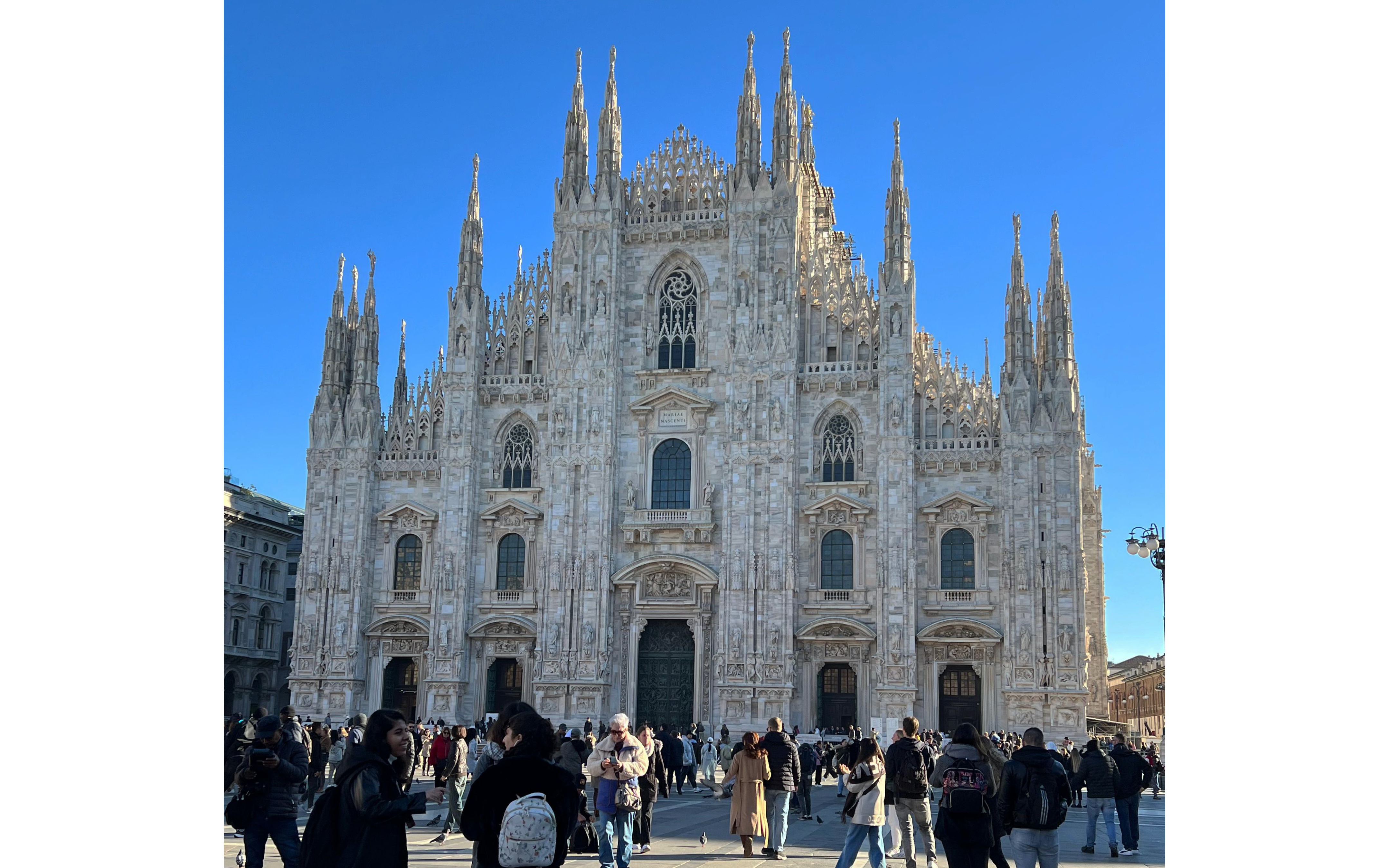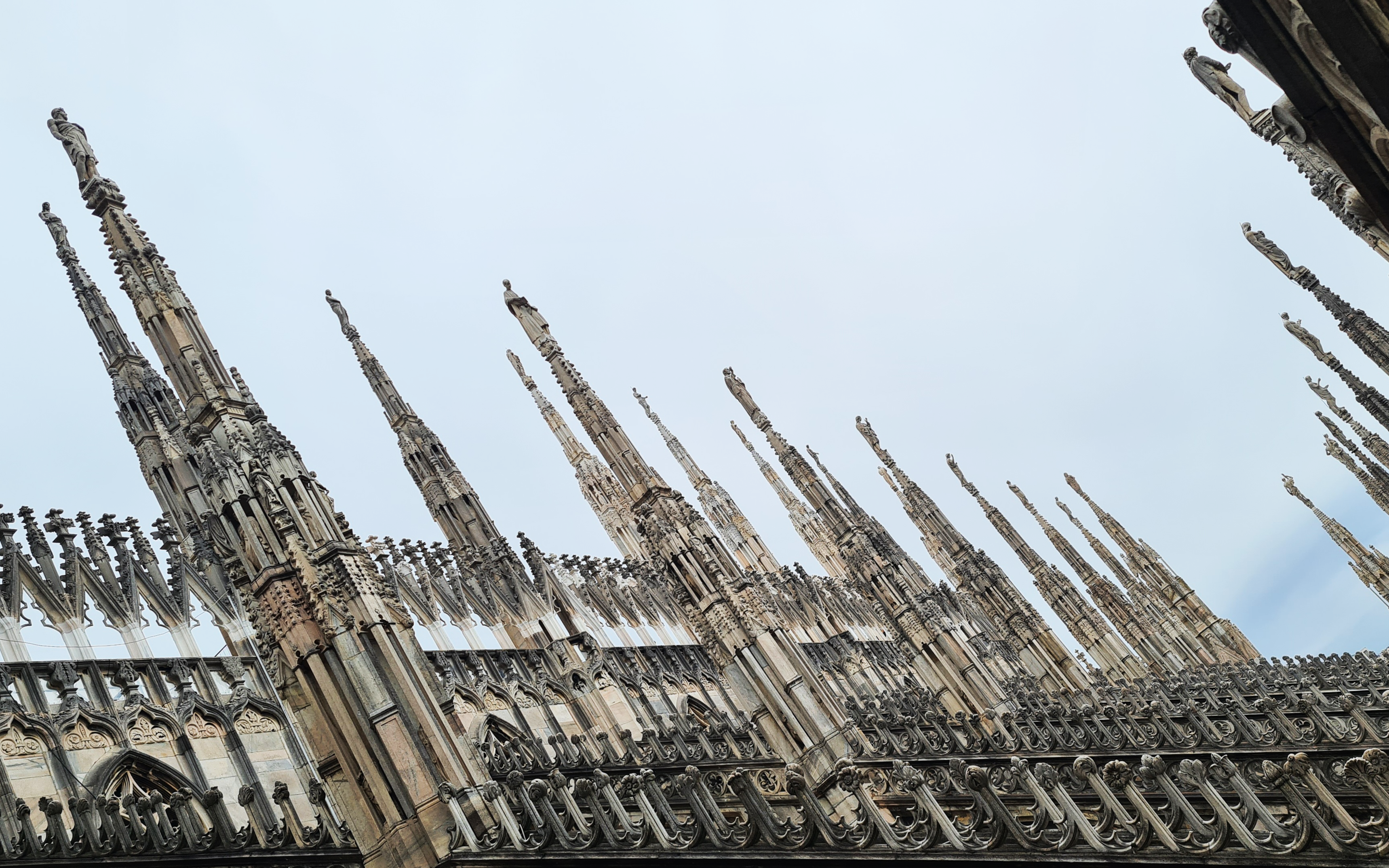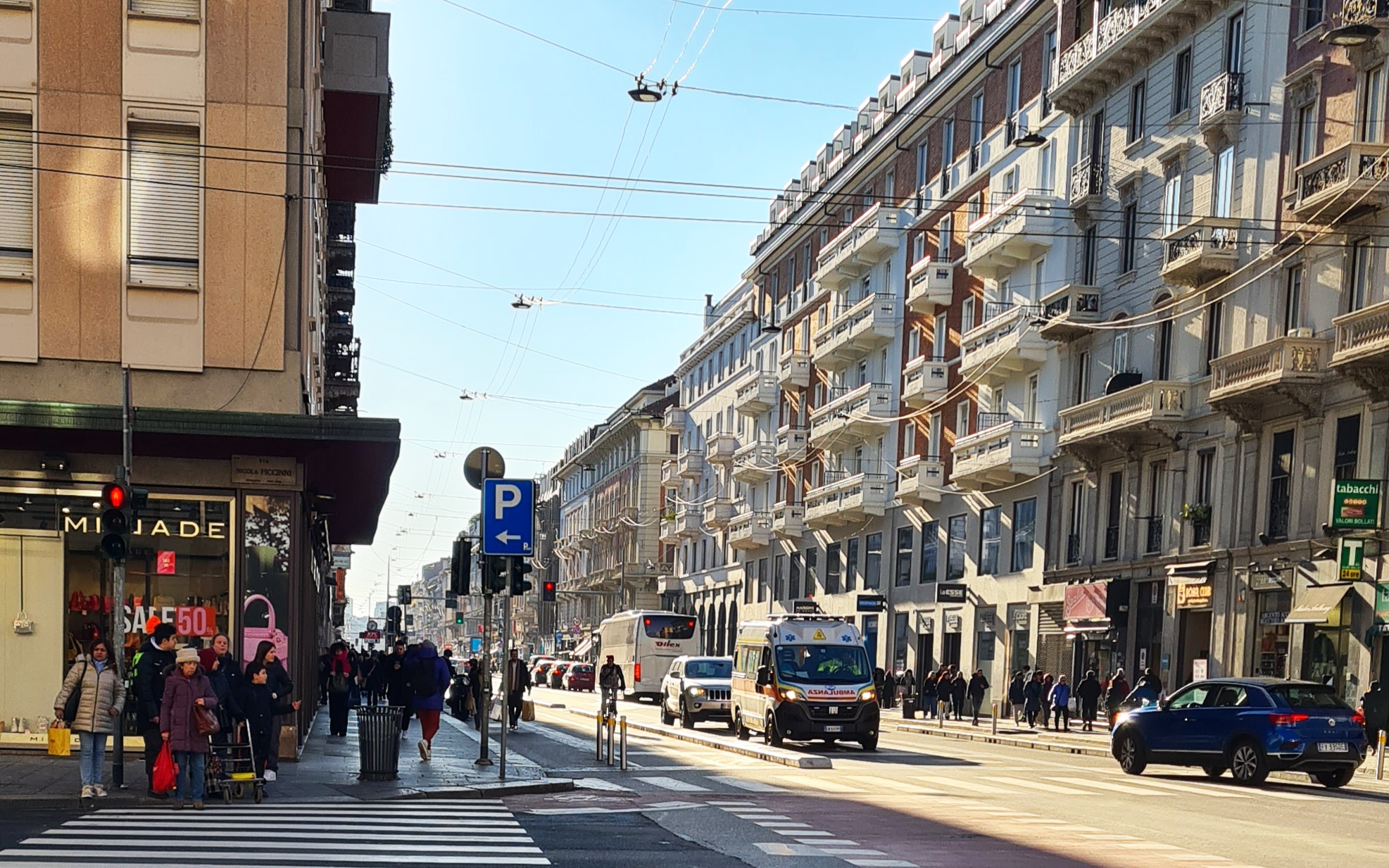Simon conducted research for his bachelor's thesis at the Politecnico di Milano
He travelled to the north of Italy for five months and immersed himself in the new research environment.
Field of study: BSc Chemistry
Stay abroad: Bachelor's thesis
Host institution: Politecnico di Milano
Semester: Autumn/Spring 2023/24
What made you decide, what motivated you to go abroad?
I wanted to experience a new work environment and culture over a longer period. Additionally, I was curious about how laboratories outside of Switzerland operate.
Why did you choose your host institution/country?
As I am half Italian, I am already familiar with Italian culture and way of life. Milan itself is a beautiful city and home to a large chemical industry. Additionally, I saw a chance to improve my Italian language skills. Writing a bachelor's thesis in the industry is unusual in Italy, so a university was the only option. Luckily, Professor Davide Moscatelli from the Politecnico di Milano was happy to give me the opportunity to work on one of his projects.
What does a typical day at the host institution look like?
The working hours were flexible, but in our group, we agreed to be present at 9:30. We usually started the day with a reaction that would take between 10 minutes and 3 hours. At lunchtime, the doctoral candidates and us, the thesis students, usually ate together. Those who did not bring anything could get lunch from the various food trucks on campus. In Italy, lunchtime usually lasts from 13:00 to 14:00, which takes some getting used to as a Swiss person, where people eat as early as 11:30. After lunch, we would have an espresso and get back to work. Depending on the amount of work that had to be done, I would go home between 17:00 and 19:00, and on rare occasions as late as 20:00. I lived rather close to the university (20 minutes by foot), so I would soon be home to cook and eat dinner.
Tell us about your research and your research findings during your residency.
The project I worked on dealt with the conversion of waste biomass from vegetable oil production into biofuel by solvolysis. I cannot get into details, as the project is funded by Eni S.p.A. and is considered confidential, but I can say that we found that various biomasses show vast differences in suitability for biofuel production.
What surprised you the most about your stay abroad?
I was surprised by how familial the research groups are. It was important to eat together at lunchtime, as the people who work there have known each other for years and are very welcoming to new members. One challenge was the material limitations, which are common. For example, to measure something by GC, it had to be sent to a technician because only a handful of instruments were available. Fortunately, the team consisted of very talented people, and solutions were often quickly found. These limitations strengthened my ability to improvise and find workarounds for problems I had not encountered before.
What tip would you like to give to future exchange students.
You should bring your own lab goggles and lab coat, as it was hard for thesis students to get personal equipment. The university in Milan is structured differently than what we are used to in Switzerland, but the people in the research groups are very helpful, and I eventually got my own lab coat. Another tip is that Milan is quite loud, and depending on where you live, the morning traffic can wake you up, so have some earplugs ready. Finally, you should really try a panettone, one of Milan’s many specialties, fresh from the bakery.
Is there anything else you would like to share?
The lab group often did things together in their free time. We frequently went climbing after work and occasionally had dinner in a restaurant. On some weekends, I visited other cities like Bologna, Bergamo, and Florence, as these cities are well connected by train and very much worth visiting.




